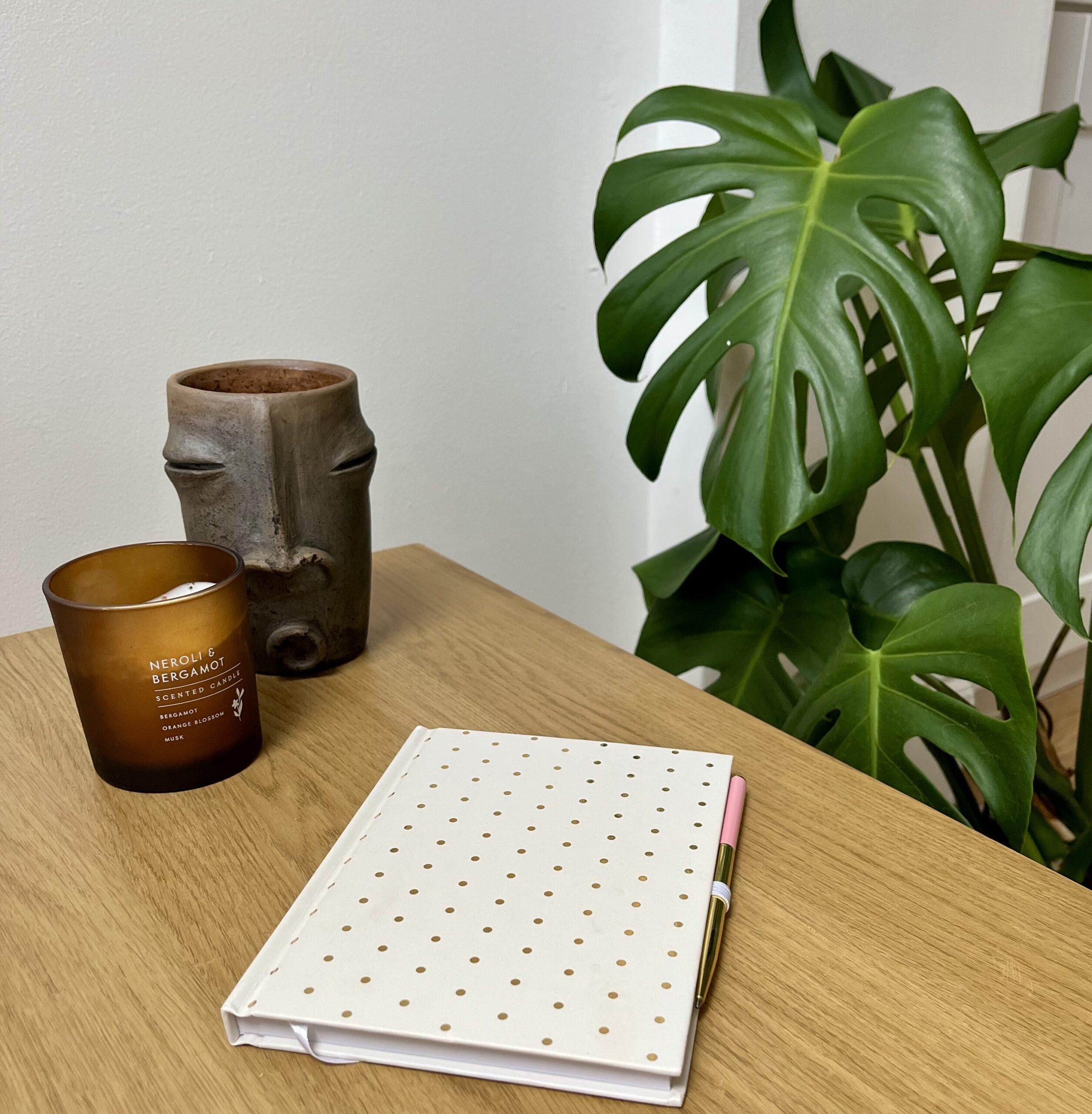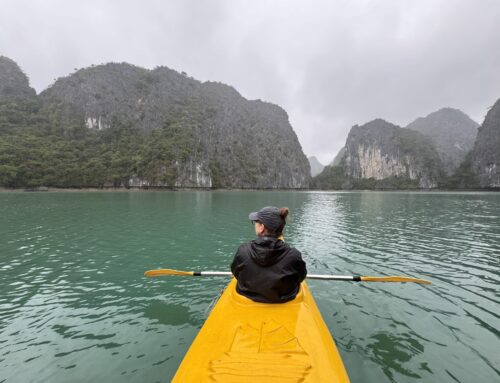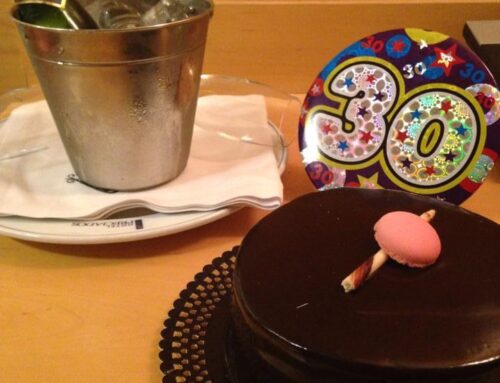By Dr Charlotte Russell, Clinical Psychologist & Founder
Reflecting on our own experiences can be one of the most helpful ways to grow as a person and to learn from our experiences. In this article I’m going to talk you through the benefits of journaling and provide travel journal prompts to help you reflect, learn and grow from your travels.
Is journaling effective?
There is some research evidence that journalling is effective. However, there a lot of gaps in the research and so we don’t fully know how effective journalling can be, and under what circumstances. The types of journalling used in studies differs, and the outcome measures also vary so this makes it very difficult to be conclusive!
When it comes to decreasing distress, one high quality study provides us with good evidence. This study examined the effects of journaling in patients with physical health difficulties and increased anxiety (Smyth et al., 2018). It was found that journalling over a 12-week period reduced distress and improved psychological well-being.
From the perspective of personal growth, there has been some good evidence that journaling can be helpful. This research has come from studying nursing students and their personal and professional development. A review of 19 studies in this area found that journaling can help nursing students with their professional growth and ability to understanding and manage emotions (Greenleaf Brown et al., 2022).
How can journaling be helpful?
As a clinician, I would consider journaling to be a positive strategy and would encourage clients to try it. As is the case with any strategy, some clients are going to find it very helpful and some not so much. We are all different and we have to find what works best for us.
In terms of how journaling helps, there are a number of aspects to this. These include:
- Helping us to become more aware of our emotions
- Being an act of self-care and a way to value our experience
- Reflecting on our experience helps us to learn from it and make changes. This is a very established idea in psychology. For more on this see Kolb’s Learning Styles & Experiential Learning Cycle
- To understand ourselves and improve self awareness. This often helps us to show up better in our relationships with others and with ourselves.
- To be more aware of unhelpful thinking. This helps us to step back from thoughts that can cause or exacerbate distress.
- To help you to reach new insights about yourself and your situation
Should I buy a ready-made travel journal with prompts?
There are advantages and disadvantages to buying a ‘ready-made’ travel journal. The advantage is of course that everything is laid out for you in a way that guides you through. However there is no guarantee that the journal prompts contained in the journal with be right for your situation and resonate you with.
In the same way as with therapy, there is no ‘one size fits all’ and it is necessary to adapt the prompts you use in order to make them most helpful to you. You probably wouldn’t want your therapist to go through a list of pre-existing questions and so you may not want this from your journal either!
As an alternative I personally prefer to buy a pretty notebook and come up with or find prompts resonate with me. This ensures that the reflections you are making feel meaningful to you and you aren’t going through the questions in a tick box manner which ultimately is less helpful.
Later on in the article you will notice that my journal prompts are tailored to specific situations and your stage in life. This is important as our needs change significantly depending on our situation and across our lifespan.
How to journal effectively
It’s important to make journaling a positive experience for yourself and not another thing ‘to do’ or tick off. Focus on how you can make it a nice experience for yourself.
Personally, I like to go to a nice café and sit with my notebook. I will tend to choose the journal prompt I’m going to focus on and then focus solely on that. If I am at home I will light a candle, grab myself a hot drink and make myself comfortable while journaling.
It is necessary to put away distractions including your phone once you have chosen one or two prompts. If you struggle with focus set yourself a timer and work for 25 minutes, even if this is just jotting down ideas that aren’t fully formed (this is called the pomodoro technique).
Setting your journal intention and choosing your prompts
When it comes to choosing the journal prompt that you are going to work on, firstly think about what your intention for the journal is. This will dictate the journal prompts you will want to use. Below are some examples of journal intentions.
I want to use my travel journal to:
- Reflect and grow on my first solo trip
- Help me to process a loss, challenge or difficult experience
- Cultivate gratitude (this would typically involve using a gratitude journal)
- Support my personal growth
- Make sense of my story and where I am in life
- Embrace the new stage in my life / new beginning
- Document my journey / special trip
Your journal intention will help you to select the right journal prompts. For example, the prompts you may choose for processing a loss will be very different to prompts that help you to document your journey.
It is also important that you choose prompts that resonate with you. Choose prompts that feel meaningful and questions that you feel needs to be answered.
Sometimes you might want to choose a prompt that feels affirming to dive into. As an example, I went through a difficult experience at work many years ago and needed to take a but of time off. Journaling really helped me at that time. Many of the prompts that I used were about my strengths and values. This helped me to look after myself and retain my sense of self in a situation that felt very difficult and cruel.
When choosing journal prompts, I want you to select prompts that ‘feel’ important. I use the word ‘feel’ here very intentionally. As therapists we ask our clients a lot of questions and some are fruitful, and some aren’t. A good question that resonates with the client will tend to spark something in them. It’s noticeable in the therapy room. This is what I want you to look out for when you are choosing journal prompts for yourself.
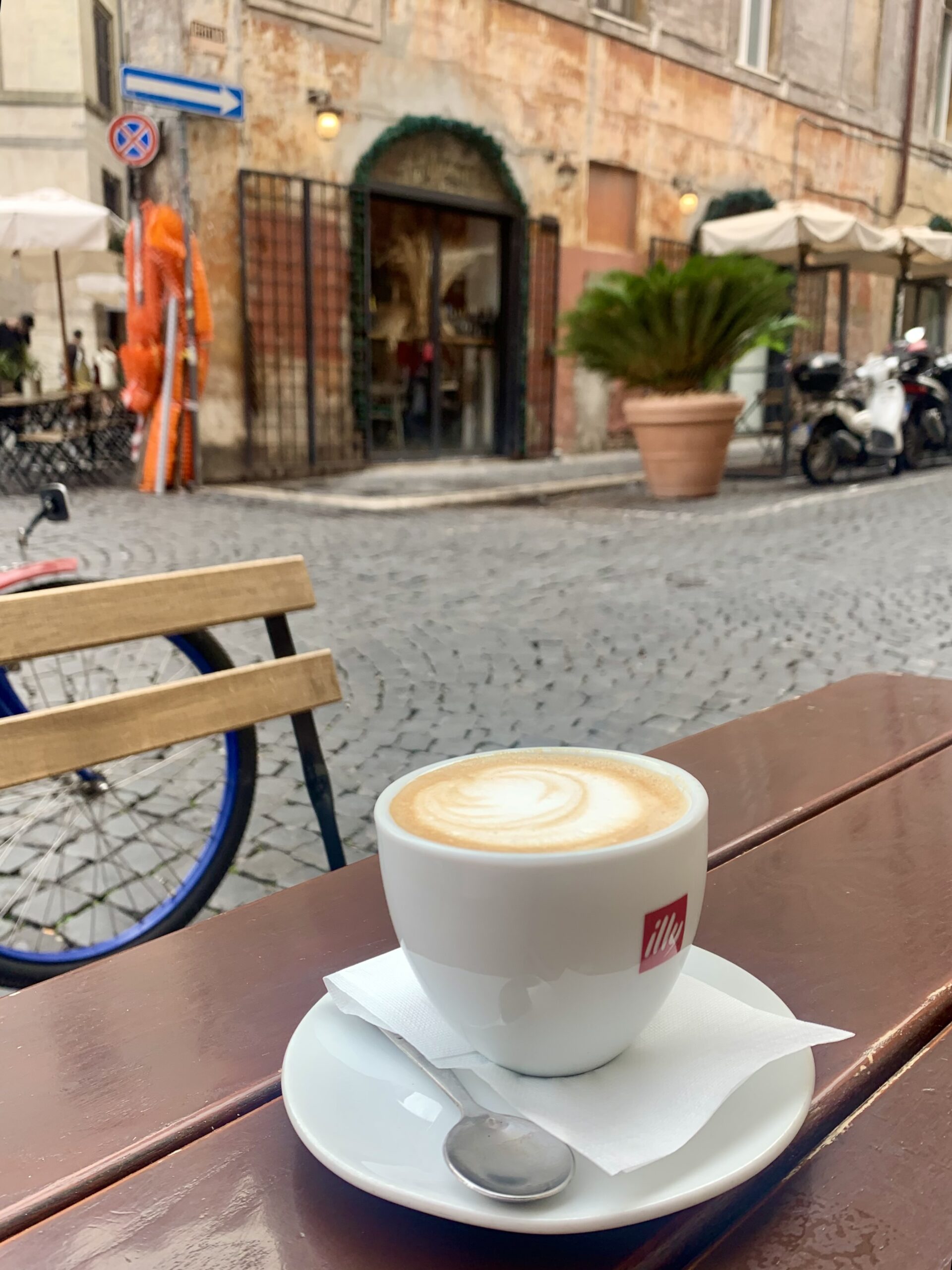
Travel journal prompts
Each of these prompts are adapted these to different journal intentions, your situation and where you might be in your life. Our audience is mainly female, educated and aged 25-55 and so the journal prompts I’ve included are targeted for this group. That’s not to say the prompts are not helpful for men or younger/older people but you may want to adapt them as feels right for you.
For your first solo trip
- What is my intention for my trip?
- How do I feel before embarking on my journey?
- What do I notice about myself when I travel solo? How am I different than in day-to-day life?
- How does it feel to be guided by myself?
- What am I learning about myself?
- What moments from the trip will stick with me?
For reflecting on personal growth while travelling
- What are the things that I’ve found challenging?
- What have I dealt with better than expected?
- What does how I have approached the trip say about me as a person?
- How has the trip helped me to reflect on my values
- How has the trip helped me to reflect on my strengths?
- What are the things that I find most challenging? What would help me to come to terms with the things I am less good at?
- How can I be kind to myself knowing that I am human and imperfect?
- How does what I am learning about myself connect to my history? Where have I seen glimmers or my true character or strengths before?
For travelling after a loss or life challenge
- What sense can I make of what has happened?
- What am I proud of in terms of how I have dealt with this situation?
- What do I need to allow me to process what has happened?
- What do I know now that I didn’t know before?
- Are there any processes or rituals that can help me at this time?
- Who can I connect with to help me to process the loss?
- What does how I dealt with this situation say about me as a person?
- What have my strengths been?
- What has been important to me in how I’ve dealt with the situation?
- How can I be kind to myself in this situation?
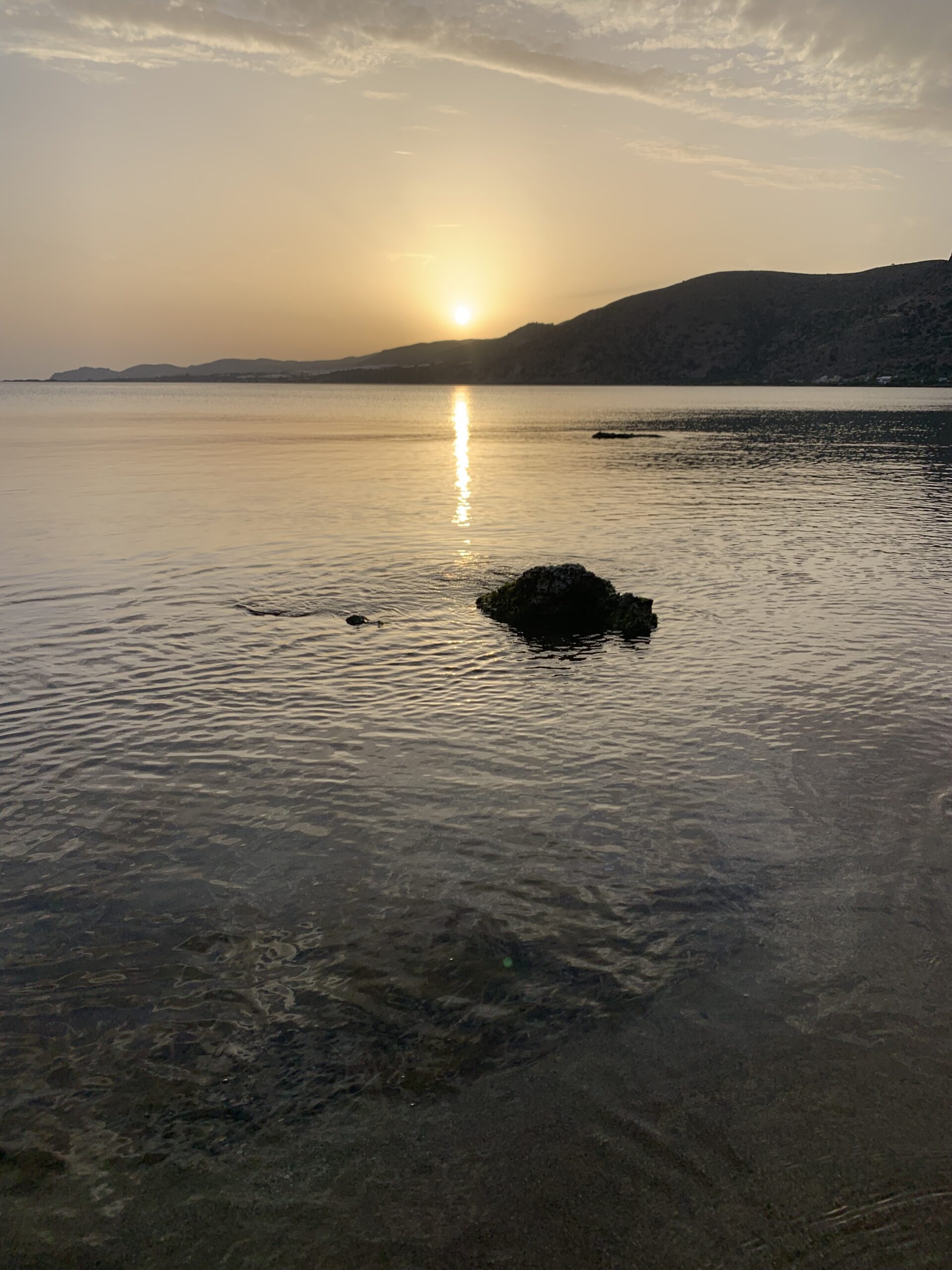
For reflecting on your travel preferences in your 20s
Typically in our 20s we are establishing our preferences and needs and getting to know ourselves, which usually means trying out different things and finding out what suits us. This is a necessary process and involves trial and error.
As a young adult we may spend more time with friends and be more influenced by those around us. This is normal and natural but provides an important point of reflection. A task at this stage is to be able to differentiate our own preferences and when we are compromising and going along with others.
- What kinds of experiences am I drawn towards?
- Can I distinguish between my own preferences and what other people are doing?
- What travel experiences have I enjoyed the most so far? Try to be specific about what it is you enjoyed.
- How do my preferences differ from those around me?
- What do my reflections tell me about me as a person and what I value?
- Have my preferences changed over time? In what ways?
- When it comes to travelling, what are my key preferences that I don’t want to compromise on? What is less important?
For reflecting on your travel preferences in your 30s onwards
By our 30s and 40s we will begin to know ourselves better. Hopefully we are going through or have been through the process of understanding who we are and how our past experiences have shaped us. It’s for this reason that many people access therapy around this time in life.
- How have my travel preferences changed over the years?
- What has been a constant and remained the same?
- What have I noticed about how my travel needs change depending what is going on in my life?
- How are my travel preferences different to those around me? What does this say about me and my personality?
- How have I grown over the years? How has this impacted my travel choices and preferences?
- How do I use different types of travel to meet different needs?
- What type of trip helps me to relax? What sparks my curiosity? What are the indicators that I might need one or the other?
To cultivate gratitude
Typically gratitude journals are present focused and use prompts such as:
- List 3 things that you are grateful for today
- List 3 things in your life that you are grateful for
- Choose one thing that you are grateful for (choosing just one thing can be challenging and helps us to sift through all the things that we are grateful for, so can be very effective)
You can also look back on previous travel experiences with gratitude:
- What are the travel experiences that I am most grateful for?
- What moments from my travels will stay with me?
- What treasured items or souvenirs can help me to cultivate gratitude for my travel experiences?
Final thoughts
Remember that journaling is a process. It is most effective when the prompts spark insights and new ways of thinking. It is important to allow your mind time to process these insights and to integrate them. I often liken this to the process of digestion: You may be semi-aware that this processing is going on in the background, but it is mostly unconscious.
Most of all, be grateful to yourself for showing up and taking the time to take care of yourself.
References
Greenleaf Brown, L., Briscoe, G. S., & Grabowsky, A. (2022). The influence of journaling on nursing students: A systematic review. Journal of Nursing Education, 61(1), 29-35.
Smyth, J. M., Johnson, J. A., Auer, B. J., Lehman, E., Talamo, G., & Sciamanna, C. N. (2018). Online positive affect journaling in the improvement of mental distress and well-being in general medical patients with elevated anxiety symptoms: A preliminary randomized controlled trial. JMIR mental health, 5(4), e11290.
If you liked this post check out How can travel help with our personal growth?

